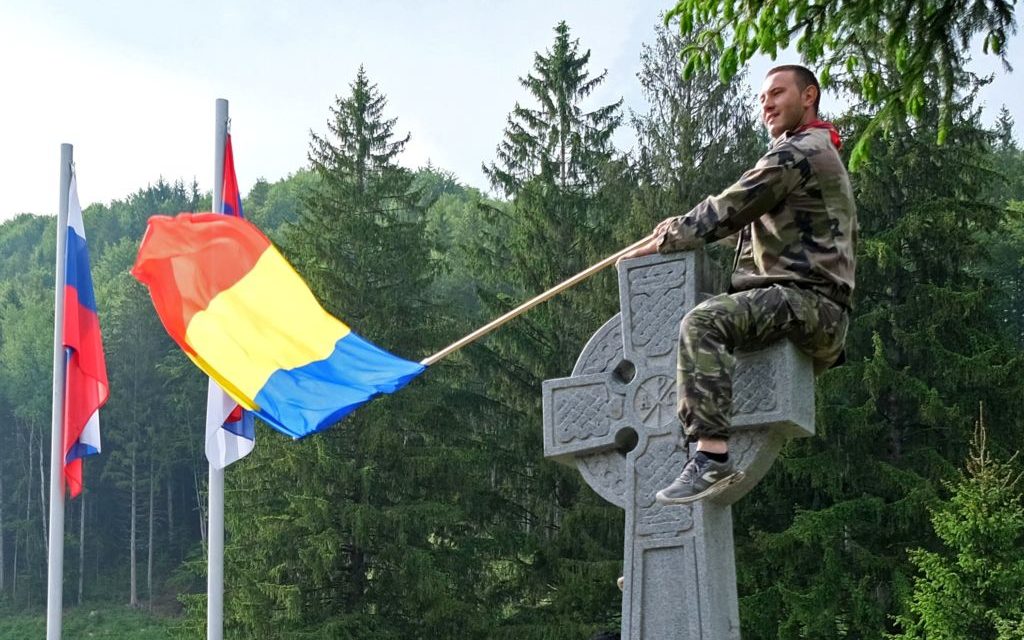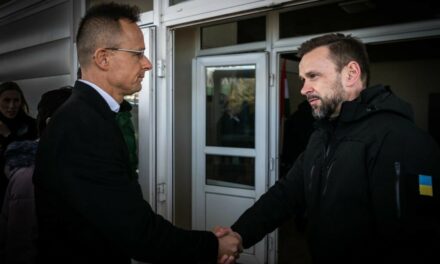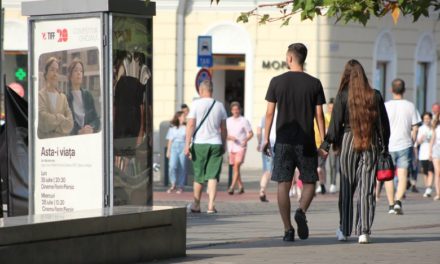The Moinesti City Prosecutor's Office still does not see that a crime was committed on June 6, 2019, when several thousand groups of nationalist Romanians forcibly entered the Úzvölgy military cemetery to consecrate and lay wreaths on the plot created for Romanian heroes.
The prosecutor's office was ordered by the Moinesti city court last December to continue the investigation into the cemetery seizure, after annulling the prosecutor's order that closed the case. At the time, the fact that the prosecutor investigating the incident only heard Romanian witnesses and did not consider, for example, incitement to hatred or discrimination, chanted at the cemetery, "Get the Hungarians out of the country!" caused a lively press response and protests from human rights organizations. password.
The press office of one of the reporting parties, the Transylvanian Hungarian Association (EMSZ), announced the similar contents of the prosecutor's decree concluding the repeated investigation in a statement on Saturday.
According to the summary of the EMSZ, only Romanian witnesses were heard during the investigation, who testified that there was no disorder, although this is denied by numerous video recordings. According to the accounts of the Romanian witnesses, the representatives of the Hungarian community present behaved in a way that could have led to the violent act, but fortunately the Romanians did not respond to the provocation.
The prosecution pointed out that the municipality of Csíkszentmárton did not file a complaint regarding the vandalism of the gate of the military cemetery, and therefore dropped the vandalism charge. In the same way, the prosecutor's office also dropped the accusations of physical assault, on the grounds that no such report had been received. They also dropped accusations of rioting and disturbing public order, saying that only patriotic songs and the Romanian national anthem were played at the venue.
At a later point in the justification, the prosecutor's office admitted that chants defaming the Hungarians present could still be heard. He did not consider these to be anti-minority hate speech because, in his opinion, they were not addressed to the general public, but only to a specific number of groups.
"The anti-Hungarian anti-Hungarianism in Romania, elevated to state policy, can also be clearly seen from this example. With numerous video recordings, we proved ourselves that at the Úzvölgy cemetery they not only desecrated the memory of our heroic dead, but also attacked the Hungarians with sticks and flagpoles. It seems that despite all the facts and evidence, the prosecutor's office is protecting the aggressors, and this proves only one thing, namely that Romania is not a state of law," the EMSZ statement quoted István Csomortányi, the association's co-president, as saying.
"I was at the gate of the Úzvölgy cemetery when the Romanian crowd gathered there attacked us and broke into the cemetery. I saw it with my own eyes, which is also confirmed by the video recordings. It is unfortunate that the Romanian justice system ignores reality to such an extent, disregarding the European and Romanian legal order," added János Mezei, the other co-president of the EMSZ.
According to the law, the depopulated village of Úzvölgye, located on the border of Hargita and Bákó counties, is part of the Csíkszentmárton village of Hargita county. During the First World War, a cemetery was created in the settlement for the Hungarian soldiers who died here, in which the remains of soldiers of other nationalities were also buried by the Romanian war graves authorities after the war. The cemetery renovated and cared for by the municipality of Csíkszentmárton was registered as its own public property by the mayor's office of Darmanesti in Bákó county, and in April of last year, without informing Csíkszentmárton, it created a Romanian plot and a monument in the cemetery. On the sixth of June, the municipality of Darmanesti allowed Romanian nationalist organizations to march and lay wreaths in the cemetery. And on the road passing in front of the cemetery, the local government of Hargita County allowed an extraordinary meeting of the Hungarian representatives of the Kovászna County Local Government, to which the settlements of Székelyföld were also invited.
The people of Székelyföld put a live chain in front of the cemetery so that under the guise of laying wreaths, the Romanian plot could not be inaugurated with a church ceremony, the creation of which is the subject of a series of lawsuits.
The cemetery was occupied by groups of soccer hooligans bypassing the Hungarian live chain, who tore down the gate of the cemetery and abused the protesters and journalists from Székelyföld, paving the way for the priests and Romanian wreath-layers inaugurating the Romanian plot.
After the events, several Hungarian participants, organizations and institutions filed a complaint against the attackers who chanted nationalist slogans, but due to the unclear nature of the area, some of them went to the Moinesti prosecutor's office in Bákó County, and the other part to the Hargita County Prosecutor's Office. The latter has not yet provided for the filing of charges or the closure of the case.
MTI
Photo: MTI/Nándor Veres.












